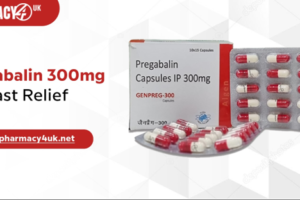The plumbing industry plays a crucial role in maintaining the infrastructure of residential, commercial, and industrial buildings. Whether it’s new construction, renovation, or routine maintenance, plumbing is essential to ensuring the safety, functionality, and comfort of any structure. For contractors and retailers in this field, sourcing materials from a reliable wholesale plumbing supply is a critical factor that can determine the success and profitability of their business.
In this comprehensive guide, we’ll explore the intricacies of the wholesale plumbing supply industry, the types of products available, key considerations when choosing a supplier, and strategies for building a strong relationship with your wholesale partners.
The Importance of Wholesale Plumbing Supply
Plumbing supplies are the backbone of any plumbing project, and the need for a dependable source of materials cannot be overstated. Wholesale suppliers play a pivotal role in the supply chain, providing contractors, retailers, and other professionals with the materials they need to complete their projects on time and within budget.
Benefits of Sourcing from a Wholesale Supplier
- Cost Efficiency: One of the most significant advantages of purchasing from a wholesale plumbing supply is the cost savings. Wholesalers buy in bulk directly from manufacturers, allowing them to offer products at a lower price per unit than retail outlets. This cost efficiency is essential for contractors and retailers who need to maintain competitive pricing while ensuring profitability.
- Access to a Wide Range of Products: Wholesale suppliers typically carry a broad inventory, including everything from basic plumbing fixtures to specialized tools and materials. This variety allows contractors and retailers to source all their needs from a single supplier, simplifying logistics and saving time.
- Reliability and Consistency: A good wholesale supplier provides a reliable and consistent supply of materials, ensuring that projects can proceed without delays due to stock shortages. This consistency is crucial for maintaining project timelines and customer satisfaction.
- Quality Assurance: Reputable wholesale suppliers offer products that meet industry standards and are backed by warranties. This quality assurance is vital for contractors who need to ensure the longevity and reliability of their installations.
- Expert Support: Many wholesale plumbing suppliers offer additional services such as technical support, product training, and consultation. These services can be invaluable in helping contractors and retailers choose the right products for their specific needs.
Types of Products Available from Wholesale Plumbing Suppliers
The plumbing industry encompasses a wide range of products, each serving a specific function within a plumbing system. Wholesale plumbing suppliers typically offer a comprehensive selection of these products, catering to the needs of various professionals within the industry.
1. Pipes and Fittings
Pipes and fittings are the fundamental components of any plumbing system. Wholesale suppliers offer pipes in various materials, including:
- PVC (Polyvinyl Chloride): Lightweight, durable, and resistant to corrosion, PVC pipes are commonly used in residential and commercial plumbing systems for both water supply and drainage.
- PEX (Cross-linked Polyethylene): PEX pipes are flexible, easy to install, and resistant to freezing, making them a popular choice for water supply lines in residential buildings.
- Copper: Known for its durability and resistance to bacteria, copper pipes are often used in both hot and cold water systems.
- Steel and Iron: Galvanized steel and cast iron pipes are typically used in older buildings and for specific applications such as gas lines or industrial plumbing systems.
Fittings, such as elbows, tees, couplings, and adapters, are essential for connecting pipes and creating a functional plumbing system. Wholesale suppliers offer these fittings in various materials to match the types of pipes being used.
2. Valves and Controls
Valves and controls regulate the flow and pressure of water within a plumbing system. Wholesale plumbing suppliers provide a wide range of valves, including:
- Ball Valves: These valves offer a reliable shut-off mechanism and are commonly used in both residential and commercial plumbing systems.
- Gate Valves: Known for their durability and full-flow capabilities, gate valves are typically used in large-scale plumbing systems.
- Check Valves: These valves prevent the backflow of water, ensuring that water flows in only one direction through the system.
- Pressure Reducing Valves (PRVs): PRVs control water pressure, preventing damage to pipes and fixtures due to high pressure.
- Thermostatic Mixing Valves (TMVs): These valves mix hot and cold water to deliver water at a consistent, safe temperature, reducing the risk of scalding.
3. Fixtures and Faucets
Fixtures and faucets are the visible components of a plumbing system, playing both functional and aesthetic roles. Wholesale suppliers offer a variety of these products, including:
- Sinks and Basins: Available in various materials such as porcelain, stainless steel, and composite, sinks are essential fixtures in kitchens, bathrooms, and utility areas.
- Toilets: Wholesale suppliers offer a range of toilets, including standard gravity-flush models, dual-flush systems, and water-saving designs.
- Bathtubs and Showers: From traditional tubs to modern walk-in showers, wholesale suppliers provide options to suit various design preferences and budgets.
- Faucets: Faucets are available in numerous styles and finishes, including single-handle, double-handle, and touchless models, catering to both residential and commercial applications.
4. Water Heaters and Boilers
Water heaters and boilers are critical components of any plumbing system, providing hot water for domestic and commercial use. Wholesale suppliers typically offer:
- Tank Water Heaters: These are the most common type of water heater, available in various capacities to suit different household sizes.
- Tankless Water Heaters: Also known as on-demand water heaters, these units heat water only when needed, offering energy efficiency and space savings.
- Boilers: Used for both heating water and providing space heating, boilers are available in various sizes and fuel types, including natural gas, propane, and oil.
5. Tools and Equipment
Contractors need a range of tools and equipment to install and maintain plumbing systems effectively. Wholesale suppliers provide essential tools such as:
- Pipe Wrenches and Pliers: Used for gripping and turning pipes and fittings.
- Pipe Cutters: Tools designed for cutting pipes to the desired length.
- Threading Machines: Used to create threads on pipes, allowing them to be screwed together with fittings.
- Augers and Snakes: Tools for clearing blockages in drains and sewer lines.
- Soldering and Brazing Equipment: Used for joining copper pipes and fittings.
6. Drainage and Waste Systems
A well-designed drainage and waste system is essential for the safe disposal of wastewater. Wholesale suppliers offer:
- Drain Pipes: Available in materials such as PVC, ABS, and cast iron, drain pipes are used for carrying wastewater away from fixtures.
- Traps and Vents: Traps prevent sewer gases from entering the building, while vents allow air to circulate within the drainage system, ensuring smooth flow.
- Sump Pumps: These pumps remove water that accumulates in basements or crawl spaces, preventing flooding.
- Grease Traps: Installed in commercial kitchens, grease traps capture grease and solids before they enter the wastewater system.
Key Considerations When Choosing a Wholesale Plumbing Supplier
Choosing the right wholesale plumbing supplier is crucial for ensuring that you have access to the products you need when you need them. Here are some key factors to consider when selecting a supplier:
1. Product Quality and Range
The quality of the products you purchase directly impacts the success of your projects. Look for suppliers who offer products that meet industry standards and are backed by warranties. Additionally, a supplier with a broad range of products allows you to source all your materials from one place, simplifying logistics and ensuring consistency.
2. Pricing and Payment Terms
Cost is a significant factor for any business, and the pricing offered by your supplier will affect your profitability. While it’s important to find competitive prices, also consider the payment terms offered by the supplier. Some suppliers may offer discounts for bulk purchases or early payment, while others may provide flexible payment options.
3. Reliability and Delivery Times
A reliable supplier ensures that you receive your materials on time, allowing you to meet project deadlines. Consider the supplier’s track record for on-time delivery and their ability to handle large orders without delays. This reliability is particularly important for contractors working on tight schedules.
4. Customer Service and Support
Strong customer service can make a significant difference in your relationship with your supplier. Look for suppliers who offer responsive customer support, technical assistance, and help with product selection. A supplier who understands your needs and is willing to go the extra mile will be a valuable partner in your business.
5. Location and Shipping Options
The location of your supplier can affect shipping times and costs. Local suppliers may offer faster delivery times, while national or international suppliers might provide a broader range of products. Consider the trade-offs between proximity and product availability when choosing a supplier.
6. Reputation and References
The reputation of a supplier within the industry is a strong indicator of their reliability and the quality of their products. Look for suppliers with positive reviews from other contractors and retailers, and don’t hesitate to ask for references. A reputable supplier will have a history of satisfied customers and a strong presence in the market.
Building a Strong Relationship with Your Wholesale Plumbing Supplier
Once you’ve chosen a wholesale plumbing supplier, building a strong, long-term relationship is essential for ensuring consistent access to quality products and favorable terms. Here are some strategies for fostering a successful partnership:
1. Communication is Key
Clear and consistent communication is the foundation of any successful business relationship. Keep your supplier informed about your needs, upcoming projects, and any changes in your business that may affect your orders. Regular communication helps prevent misunderstandings and ensures that your supplier can meet your expectations.
2. Be Reliable
Just as you expect reliability from your supplier, it’s important to be a reliable customer. This means placing orders in a timely manner, making payments on time, and honoring any agreements you make. Being a dependable customer can lead to better terms, such as discounts, priority service, and access to new products.
3. Negotiate Favorable Terms
Negotiating terms that benefit both parties is key to a long-term partnership. Whether it’s securing better pricing for bulk orders, arranging flexible payment terms, or negotiating faster delivery times, aim to establish terms that support your business’s growth and profitability.
4. Provide Feedback
Your feedback is valuable to your supplier, helping them improve their products and services. Whether it’s positive feedback or constructive criticism, share your experiences with your supplier. This feedback loop can lead to better products, improved service, and a stronger relationship.
5. Foster Loyalty
Loyalty to a supplier can yield long-term benefits, including better pricing, access to exclusive products, and personalized service. By consistently working with the same supplier, you can build a relationship that goes beyond transactions, fostering a partnership that supports your business’s success.
Conclusion
The wholesale plumbing supply industry is a vital part of the plumbing sector, providing contractors and retailers with the materials they need to complete their projects successfully. By understanding the types of products available, key considerations when choosing a supplier, and strategies for building strong supplier relationships, you can ensure that your business is well-equipped to meet the demands of your customers.
Whether you’re a contractor looking to streamline your supply chain or a retailer seeking to expand your product offerings, partnering with a reliable wholesale plumbing supplier is essential for achieving your business goals. By sourcing quality products at competitive prices and maintaining strong supplier relationships, you can position your business for long-term success in the competitive plumbing industry.

















